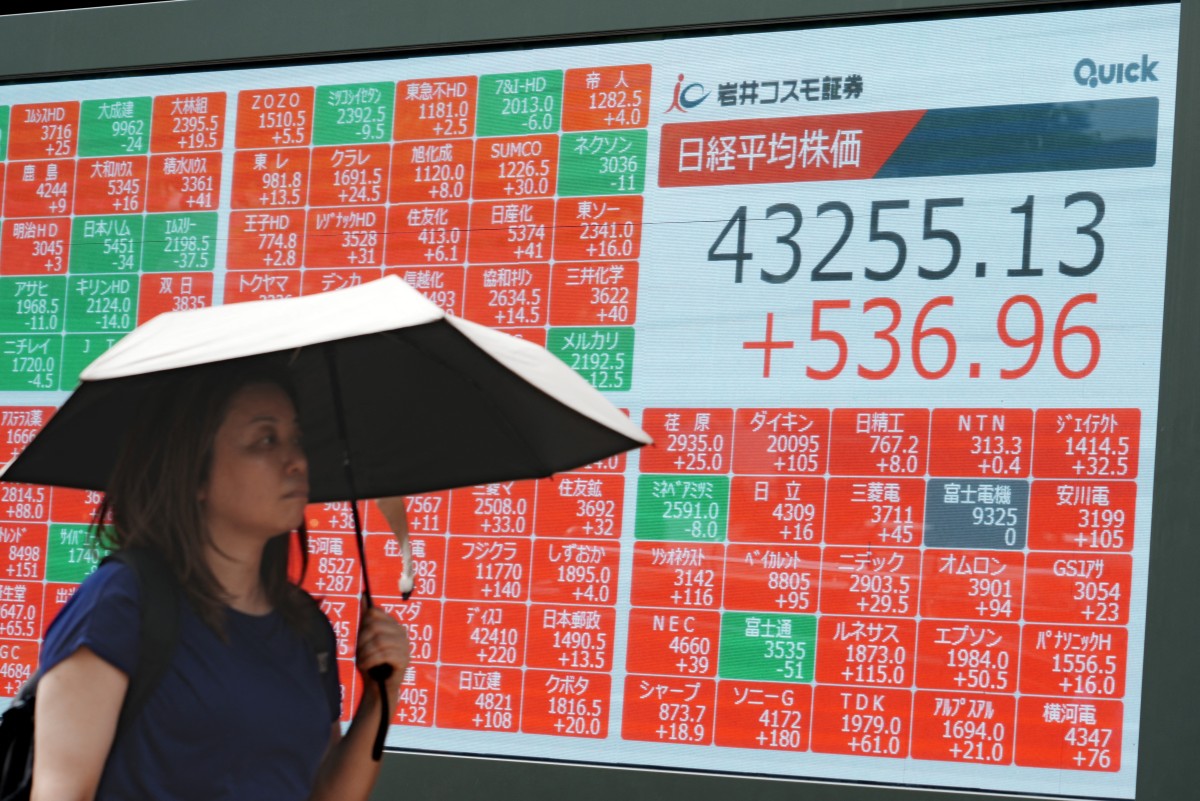London, United Kingdom — A global bond selloff spread to Japan on Wednesday while gold reached a new peak as investors fret over mounting government debt.
Wall Street stocks opened mostly higher, with shares in Google parent-company Alphabet shooting up nearly seven percent after winning a crucial court battle.
European equities also firmed, but Asia’s major stock markets were in the red.
“Government bond yields have jumped sharply in recent days, largely because investors are demanding a higher return to lend to countries with heavy borrowing needs,” said Richard Carter, head of fixed interest research at Quilter Cheviot.
Yields on 30-year Japanese government bonds rose to an all-time high of 3.29 percent on Wednesday, while 20-year yields reached their highest since 1999.
The selloff in Japanese debt mirrors widespread moves in the United States and Europe, with investors spooked over substantial piles of government debt globally.
It has been fueled by “ballooning sovereign debt, political hurdles to fiscal tightening… and structurally higher inflation following the Covid disruptions and the ongoing trade war”, said Ipek Ozkardeskaya, senior analyst at Swissquote Bank.
Investors in Japan reacted also to concerns that Prime Minister Shigeru Ishiba might soon be forced to step down.
Ishiba, 68, took the helm of the long-dominant Liberal Democratic Party last year and has since lost his majority in both houses of parliament, most recently in upper chamber elections in July.
In the United States, the 30-year government bond yield eased back having come close to hitting the five-percent mark, reflecting concerns over the country’s deficit and the impact of a court ruling against President Donald Trump’s tariffs.
Bonds of leading European nations showed signs of stabilizing, a day after the yield on Britain’s 30-year gilts hit levels not seen since 1998.
Traders have turned to traditional safe havens, pushing gold to a fresh high of $3,549.63 an ounce Wednesday.
Investors are “choosing to hold gold as protection against a host of uncertainties including President Trump’s tariffs, fiscal policy across major economies and rising bond yields,” said David Morrison, senior market analyst at financial services provider Trade Nation.
Prices have risen five percent over the last six days, with investors also nervous over the US Federal Reserve’s future after Trump attempted to fire Fed Governor Lisa Cook.
Trump’s intervention “raises questions about the long-term independence of US monetary policy — a concern that gold naturally absorbs as a hedge against political interference”, said Ole Hansen, head of commodity strategy at Saxo bank.
Oil prices dropped back amid expectations of excess supply in the coming months as OPEC+ nations are expected to further unwind production cuts.
In company news, shares in Google parent Alphabet surged 6.8 percent as trading got underway in New York on Wednesday after a US judge rejected the government’s bid to force the company to sell its Chrome web browser.
The tech-heavy Nasdaq gained 0.9 percent.
“Overall, investors saw the outcome as supportive for big tech, showing that while regulatory scrutiny is ongoing, the business models of major players remain largely intact,” Morrison said.








